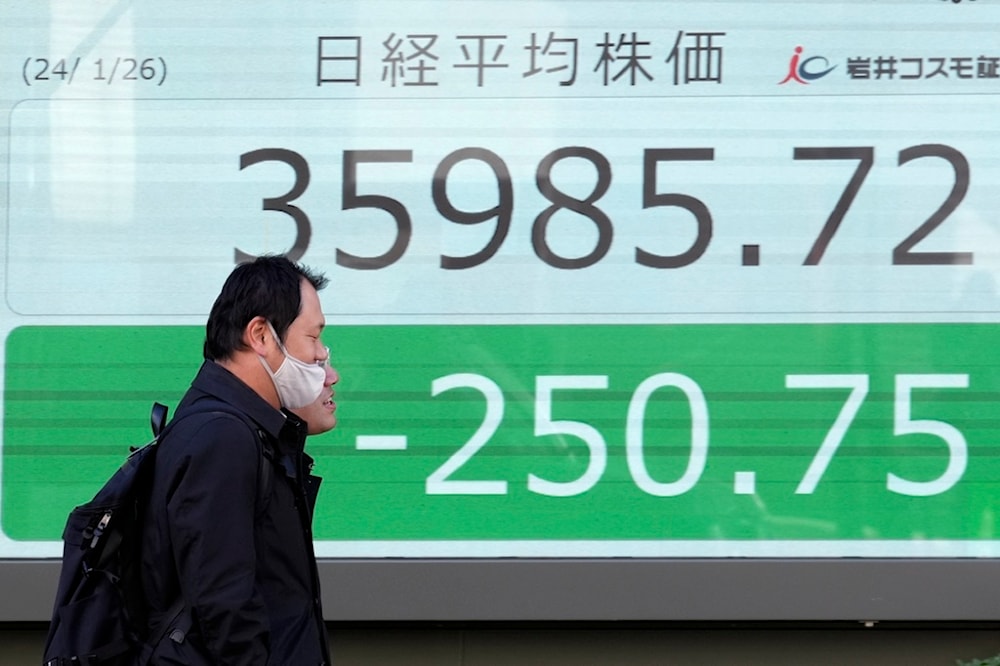Japan falls behind troubled Germany on world's biggest economies list
Since the 1990s, Japan has swung between periods of sluggish inflation and deflation and continues to keep interest rates at ultra-low levels as it tries to kickstart its economy.
-

People walk in front of an electronic stock board showing Japan's Nikkei 225 index at a securities firm Friday, January 26, 2024, in Tokyo. (AP)
Data released on Thursday shows that Japan has officially slipped to fourth place on the list of the world's biggest economies as it battles an economic recession brought on by the devaluation of its currency and its elderly demography.
Despite its economy nominally growing by 1.9% in 2023, Japan fell behind Germany, which sustained a $4.5 trillion gross domestic product (GDP), while Japan's rested at $4.2 trillion.
This lag is attributed to the Yen's weakness facing its dollar value. For the past two years, the Yen has grown weaker, minimizing profits on exports. Over the 2022-2023 interval, the Yen's value dropped by a fifth versus the dollar and totaled a 7% devaluation last year.
Since the 1990s, Japan has swung between periods of sluggish inflation and deflation and continues to keep interest rates at ultra-low levels as it tries to kickstart its economy.
Labor shortages create deficits
While Germany and Japan both face the predicament of an older population that does not boost economic productivity, heavily rely on exports, and face the scarcity of natural resources, Germany's economy has also been significantly hit by the rise in energy prices due to the Russia-Ukraine war.
However, Japan's lack of labor productivity has maximized its economic loss, surpassing Germany. Despite having a cheap automobile market that brings in high profits, Japan was not able to balance its profits with the sum of its losses.
Japan has not been able to address its demographic issue by encouraging higher birth rates, which has taken its toll on the economic labor aspect, creating large shortages that could not be filled by attracting a foreign workforce.
In 2023, Japan unveiled an economic package worth about $16.8 billion to cushion the highest inflation seen in decades, the Kyodo news agency reported, quoting Natsuo Yamaguchi, the leader of the ruling party's coalition partner Komeito.
The news agency said that the funds would be used for low-income family support, including payments of 50,000 yen for each child in such homes, which was meant to promote an increase in birth, as well as for subsidies to cover the cost of liquefied petroleum gas.
Internal concern
Japan's confidence in its economic abilities and its already generally unpopular prime minister, Fumio Kishida, is seeing a tough blow, following its drop behind an economically weakened Germany.
Moreover, India is expected to jump past Japan and Germany with the help of its young, productive labor force, according to the International Monetary Fund.
The Nikkei business newspaper recently said that Japan's demographic predicament is the main reason why the country has not been able to economically grow.
“This situation should be taken as a wake-up call to accelerate neglected economic reforms,” Nikkei said.
Read more: Germany's economy to worsen in 2024

 3 Min Read
3 Min Read








